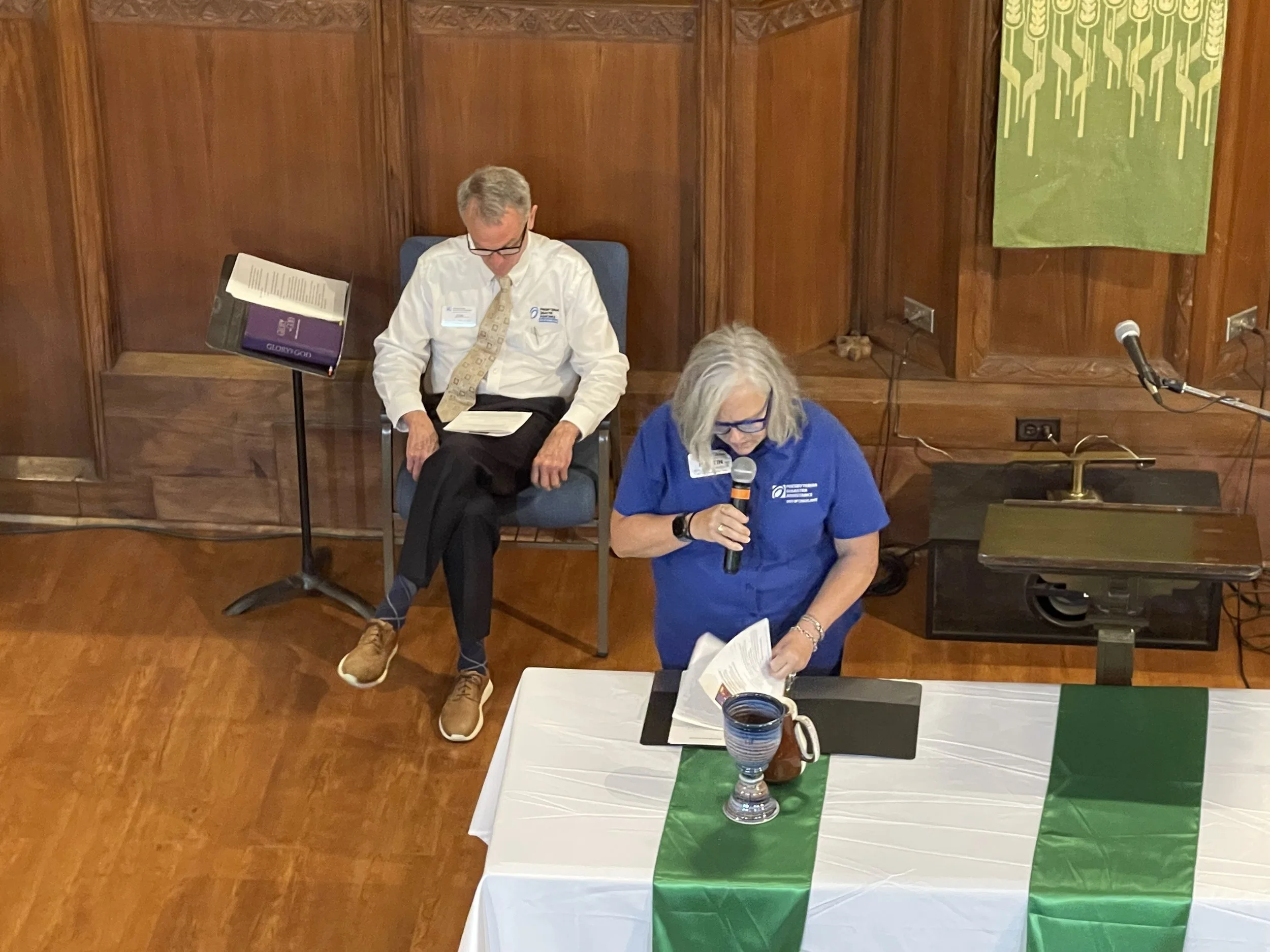Participation in democracy is a Presbyterian value
You’ve heard it time and again: voting is a sacred duty.
I remember in my freshman International Politics 101 class at Loyola University, we were given a copy of the Articles of the Constitution and Bill of Rights—and was challenged by our professor to “look for the right to vote.”
We were surprised.
It’s not there.
There is no clear right to vote guaranteed.
This makes voting all the more sacred: various groups of people had to fight for the privilege to vote through subsequent amendments and acts of Congress.
A values-driven action
Voting is also sacred for another reason: It allows us to choose leaders based on our own values—our Presbyterian Christian values.
What Jesus taught in Scripture, what Pastor Kristin proclaims on Sundays from the pulpit, must be transformed into action, in the world, and the time in which we exist.
One of the biggest ways to do that is through our vote.
Presbyterians like to emphasize the importance of seeking justice and promoting the common good—all the while acting with compassion for all people.
We are encouraged to vote in a way that reflects fairness, integrity, and concern for everyone’s wellbeing—even the wellbeing of those who disagree with us.
Our particular denomination, the Presbyterian Church (USA), teaches that we should be informed about the issues, carefully consider the candidates and policy proposals, and vote in a way that aligns with Gospel-based principles.
What did Jesus promote when he considered tough issues of his day?
How can those teachings inform what should happen today?
How would Jesus vote?
Voting is active discipleship
Voting is not just a private action!
It’s a part of active discipleship and living out one’s faith in a way that contributes to the common welfare, particularly of those who are marginalized or disadvantaged—because Jesus focused on the marginalized and disadvantaged of His time.
The Presbyterian approach suggests prayerful discernment and engagement with political issues in a way that mirrors Jesus’ compassion and justice toward others—even the ones the religious leaders of the day considered unworthy.
Yesterday, Cardinal Blaise Cupich, archbishop of Chicago, preached that the Romans got jealous that the Christians were becoming popular because they were feeding, clothing, and housing the poor. So the Emperor copied them.
Christian love can be so powerful, it can move emperors to try to copy it.
Christian love can still move public policy today.
And we can make significant starts by who we give authority.
When we lose
But after all that, sometimes the people we campaign for, and vote for, lose.
It can be a devastating blow, especially when so much hope is invested in that one person to pursue a certain agenda that matches our vision of Christian love transmogrifying whatever this is that we’re enduring now.
From a Presbyterian perspective, if a candidate we put our hopes in loses, the response should be guided by that same Christian faith—and the belief in God’s sovereignty.
Presbyterians trust that God is ultimately in control, even when political outcomes don’t align with our hopes.
The Presbyterian tradition teaches that, regardless of who holds office, Christians are called to pray for those leaders—and work for justice and peace in our communities and for all people (Romans 13:1-7, 1 Timothy 2:1-2).
In other words, we should move ahead and work toward the Gospel values we expected to win out.
In cases where policies seem to oppose our Presbyterian values, we have a tradition of peaceful advocacy and service, working toward a compassionate and just world.
There is a meme making the rounds as we head into this presidential election.
“What happens when our candidate loses?”
“Fight for basic human dignities and rights.”
“What happens if our candidate wins?”
“We fight for basic human dignities and rights.”
Don’t lose hope in losses. Keep working for the good.
